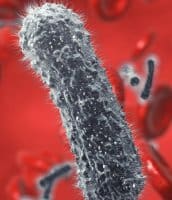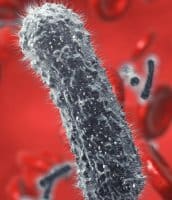
Synthetic biology and molecular manufacturing/productive nanosystems have in common the effort to rationally engineer systems to make and assemble parts for complex molecular machine systems. The effort in synthetic biology to design complex biological systems in a hierarchical architecture from well-characterized molecular parts is accelerating. A hat tip to ScienceDaily for reprinting this Imperial College news release “Discovery in synthetic biology a step closer to new industrial revolution“:
Scientists report that they have developed a method that cuts down the time it takes to make new ‘parts’ for microscopic biological factories from 2 days to only 6 hours.
The scientists, from Imperial College London, say their research brings them another step closer to a new kind of industrial revolution, where parts for these biological factories could be mass-produced. These factories have a wealth of applications including better drug delivery treatments for patients, enhancements in the way that minerals are mined from deep underground and advances in the production of biofuels.
Professor Paul Freemont, Co- Director of the Centre for Synthetic Biology and Innovation at Imperial College London and principal co-investigator of the study, which is published today in the journal Nucleic Acids Research [abstract, free full text PDF], says:
“Before the industrial revolution most items were made by hand, which meant that they were slower to manufacture, more expensive to produce and limited in number. We are at a similar juncture in synthetic biology, having to test and build each part from scratch, which is a long and slow process. We demonstrate in our study a new method that could help to rapidly scale up the production and testing of biological parts.”
Parts made up of DNA are re-engineered by scientists and put into cells to make biological factories. However, a major bottleneck in synthetic biology is the lack of parts from which to build new types of factories. To build parts using the current time-consuming method, scientists have to re-engineer DNA in a cell and observe how it works. If it functions according to their specifications, then the scientists store the part specifications in a catalogue.
Now, scientists from Imperial College London have devised a much quicker method that does away with the need for them to re-engineer a cell every time they want to make a new part. The team say their work could lead to vast new libraries of off-the-shelf components that could be used to build more sophisticated biological factories.
James Chappell, co-author of the study from the Centre for Synthetic Biology and Innovation at Imperial College London, says:
“One of the major goals in synthetic biology is to find a way to industrialise our processes so that we can mass produce these biological factories much in the same way that industries such as car manufacturers mass produce vehicles in a factory line. This could unlock the potential of this field of science and enable us to develop much more sophisticated devices that could be used to improve many facets of society. Excitingly, our research takes us one step closer to this reality, providing a rapid way of developing new parts.”
When a cell is re-engineered, the re-programmed DNA in the cell encodes a message that is conveyed by molecules called messenger ribonucleic acid (mRNA) to the cell’s production factories called ribosomes. The ribosomes translate the genetic information into a command that instructs the cell to perform functions. For example, scientists can already re-engineer a cell into an infection detector factory, which produces a protein that detects chemical signals from human pathogenic bacteria and changes colour to indicate their presence.
In the study, the Imperial researchers demonstrate for the first time that the same method can be achieved in a test tube outside of a cell. This involves extracting from cells the machinery that produces mRNA and proteins and providing the energy and building blocks to help them survive in test tubes. The team then add their re-programmed DNA to the solution and observe how it functions.
The advantage of this method is that scientists can develop litres of this cell-like environment so that multiple re-programmed DNA can be tested simultaneously, which speeds up the production process of parts.
The next stage of the research is to expand the types of parts and devices that can be developed using this method. They also are aiming to develop a method using robots to speed up and make the whole process automated.
Professor Richard Kitney, co- Director of the Centre for Synthetic Biology and Innovation at Imperial College London says: “Synthetic biology is seen by the British Government as having the potential to create new industries and jobs for the benefit of the UK economy. This work is part of a wider, major research programme within the Centre to develop technology that can be used across a range of industrial applications.”
The hope driving this research is that biological parts will transform industrial sectors like drug delivery and biofuels production into molecular manufacturing processes. Whether synthetic biology can eventually be made to contribute parts for nanofactories to implement more general molecular manufacturing using stronger, more rigid parts, remains to be seen.
—James Lewis, PhD
